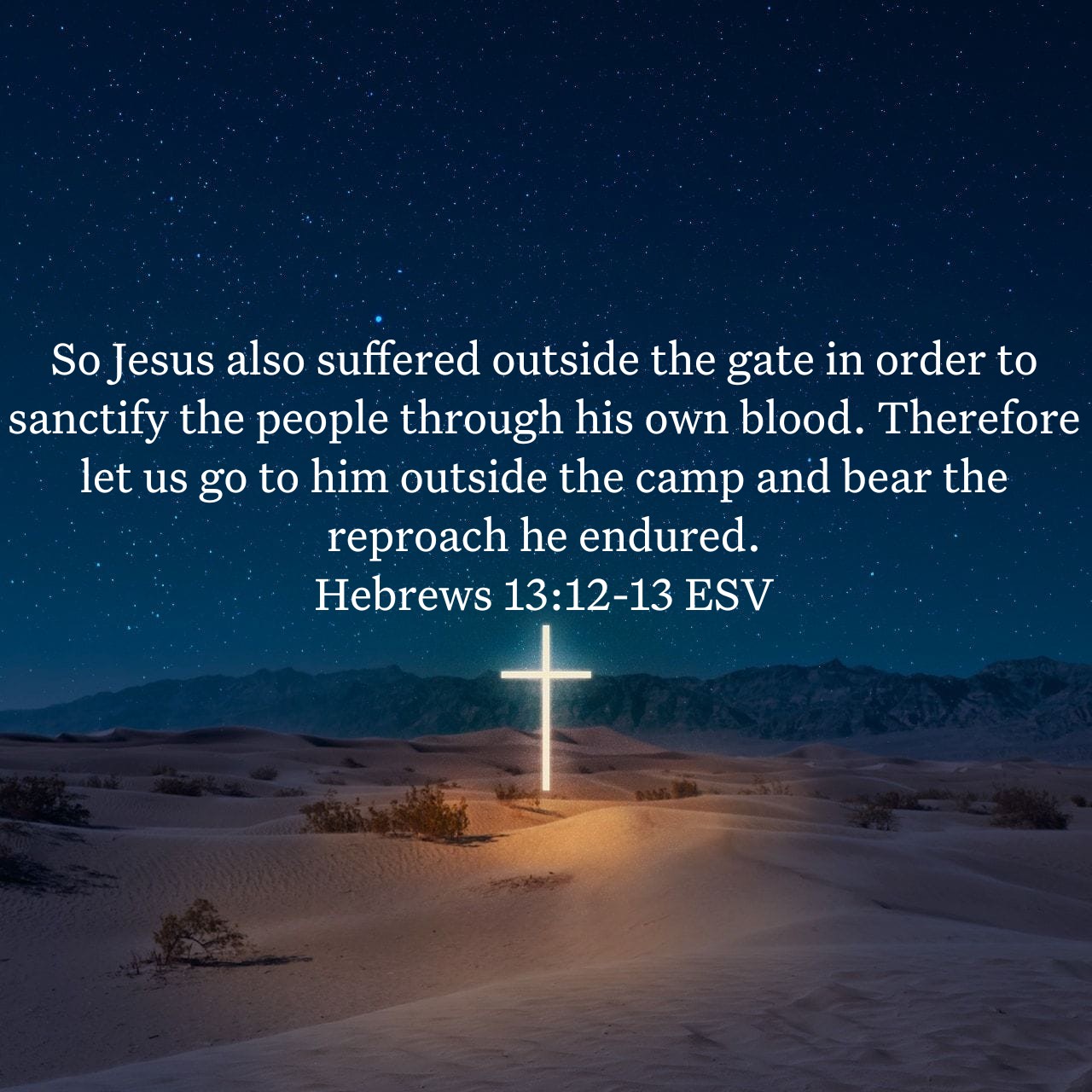Devotional 13 August 2025

The writer of Hebrews pictures Jesus as our true altar: the source of spiritual nourishment and blessing (Hebrews 9:11–14; 10:10–14). Those clinging to the old covenant’s physical altar cannot share in this feast. The imagery draws from the Day of Atonement, when the sin offering’s body was burned outside the camp (Leviticus 16:27). In the same way, Jesus suffered outside the city gate (John 19:17–20), bearing reproach to sanctify His people.
This call to “go to him outside the camp” (Hebrews 13:13) echoes the Exodus. Just as Israel left Egypt’s structures and securities for the wilderness journey, we leave the “old city” of this world’s systems for the city that is to come (Hebrews 11:10, 13–16; 13:14; Revelation 21:1–4). In Revelation 15:2–4, the saints stand by the sea of glass, singing the Song of Moses and the Lamb, a second Exodus scene, where final deliverance leads to eternal dwelling with God.
We are not only invited to receive from Christ’s altar but also to share His blessings with others (Hebrews 13:16). In this way, the Church becomes a mobile temple (1 Corinthians 3:16–17; Ephesians 2:19–22), carrying the presence of Christ into the world. This ties to our recent reflections on brotherly love (Hebrews 13:1–3) and trusting God’s provision (Hebrews 13:5–9). The unshakable kingdom (Hebrews 12:28) produces in us a faith anchored in Christ, expressed in sacrificial love, not within the comfort of old ceremonies, but in the costly mission of advancing God’s kingdom.
Our living sacrifice (Romans 12:1) is this: leaving behind the Egypt of our past allegiances, crossing the Jordan of obedience, and pressing toward the city that has come and is coming. These are the sacrifices (praise, doing good, sharing what we have in Christ) that truly please the Lord.